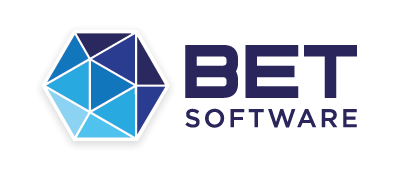20 Essential Skills Every Junior Software Developer Should Have
As a leading software development provider for gaming and other companies, BET Software understands the importance of hiring skilled junior software developers.
In this article, we will explore 20 essential skills that every junior software developer should possess. These skills encompass various aspects of software development, including coding languages, frameworks, and methodologies, to equip developers with the necessary knowledge and expertise for success in the industry.
Proficiency in Common Coding Languages:
Having a strong command of popular programming languages such as Java, Python, C++, JavaScript, Ruby, and C# enables junior software developers to work on a wide range of projects and collaborate with diverse development teams.
2. Understanding of Object-Oriented Programming (OOP) Principles:
Knowledge of OOP principles like inheritance, encapsulation, polymorphism, and abstraction allows developers to design modular, scalable, and maintainable code structures.
3. Knowledge of Web Development Technologies:
Proficiency in HTML, CSS, JavaScript, and front-end frameworks like React, Angular, or Vue.js enables developers to create interactive and visually appealing web applications.
4. Familiarity with Back-End Development:
Understanding server-side scripting languages like Node.js, PHP, or Python, as well as RESTful APIs and database management, empowers developers to build robust and efficient back-end systems.
5. Mastery of Version Control Systems:
Being proficient in version control systems like Git or Subversion (SVN) enables developers to effectively manage and track changes in code, facilitating collaboration and efficient development workflows.
6. Ability to Collaborate with Agile Methodologies:
Understanding Agile methodologies such as Scrum, Kanban, and CI/CD allows developers to work in iterative cycles, adapt to changes, and deliver high-quality software products efficiently.
7. Understanding of Data Structures:
Knowledge of data structures like arrays, linked lists, stacks, queues, trees, and graphs helps developers in designing efficient algorithms and solving complex problems.
8. Proficiency in Algorithms and Problem-Solving:
- Sorting algorithms (e.g., Bubble Sort, Quick Sort, Merge Sort)
- Searching algorithms (e.g., Linear Search, Binary Search)
- Dynamic programming
9. Knowledge of Software Testing and Quality Assurance:
Having a strong grasp of various algorithms for sorting, searching, and dynamic programming equips developers with the skills to optimise code performance and solve algorithmic challenges.
10. Understanding of Relational Databases and SQL:
Proficiency in working with relational database management systems like MySQL or PostgreSQL, and writing SQL queries allows developers to store, retrieve, and manipulate data effectively.
11. Experience with NoSQL Databases:
Familiarity with NoSQL databases like MongoDB, Redis, or Cassandra provides alternative data storage solutions for handling large volumes of unstructured or semi-structured data.
12. Familiarity with Front-End Design and User Experience (UX):
Knowledge of responsive design principles, accessibility standards, and user-centred design methodologies helps developers create visually appealing and user-friendly interfaces.
13. Ability to Debug and Troubleshoot Code:
Proficiency in using debugging tools, analysing error logs, and adopting systematic debugging approaches enables developers to identify and resolve issues in their code efficiently.
14. Knowledge of Security Best Practices:
Understanding security measures such as preventing cross-site scripting (XSS), and SQL injection, and implementing secure authentication and authorisation mechanisms helps protect software applications from potential vulnerabilities.
15. Understanding of Software Development Lifecycle (SDLC):
Familiarity with the phases of SDLC, including requirement analysis, design, development, testing, deployment, and maintenance, provides a structured approach to software development projects.
16. Familiarity with Cloud Computing Platforms:
Proficiency in cloud platforms like AWS, Azure, or GCP allows developers to leverage scalable infrastructure, storage, and services for deploying and managing applications.
17. Proficiency in Containerisation and Orchestration:
Knowledge of containerisation technologies like Docker and orchestration frameworks like Kubernetes enables developers to deploy, manage, and scale applications efficiently.
18. Experience with Front-End Build Tools and Task Runners:
Working with tools like Webpack, Gulp, or Grunt automates repetitive tasks, optimises code, and streamlines front-end development workflows.
19. Ability to Learn and Adapt to New Technologies:
Embracing a continuous learning mindset and staying updated with industry trends empowers developers to adapt to new frameworks, libraries, and technologies as they emerge.
20. Effective Communication and Teamwork Skills:
Having strong communication and teamwork skills allows developers to collaborate effectively with Team Members, share ideas, and contribute to successful project outcomes.
These 20 essential skills provide a comprehensive framework for junior software developers to excel in their careers. By acquiring these 20 essential skills, junior software developers at BET Software will be well-equipped to tackle the challenges of software development for gaming. These skills provide a solid foundation for building high-quality, efficient, and scalable software solutions.
However, it is important to note that software development is a continuous learning journey, and developers should strive to enhance their skills through hands-on experience, staying updated with industry advancements, and seeking opportunities for growth.
By nurturing these essential skills and fostering a culture of learning and collaboration, BET Software can ensure the success and effectiveness of its junior software developers in delivering cutting-edge software solutions to its clients in the gaming and other industry.






